Sinus headaches, frequently a manifestation of sinusitis, can trigger a dull, throbbing pain in the forehead, behind the eyes, or in the cheekbones.
This discomfort, often due to sinus pressure, usually intensifies with sudden head movements or straining. These can include a stuffy nose, a feeling of pressure in the ears, fever, and facial swelling, all of which are common symptoms of a sinus infection.
Sometimes, sinus headaches can signify a more severe sinus disorder, such as a bacterial or fungal infection.
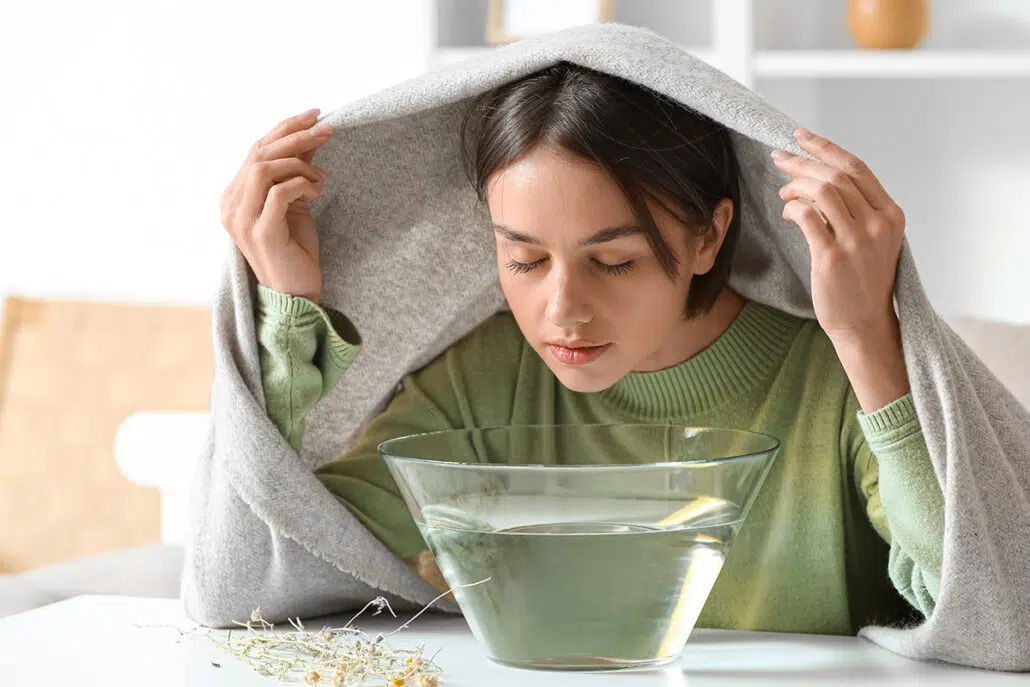
What is a Sinus Headache?
A sinus headache is a type of discomfort that arises due to inflammation and blockage within the sinus cavities, often due to a sinus infection. This bodily reaction to bacterial or viral infections can result in heightened sinus pressure, ultimately leading to a persistent, pulsating headache.
Such pressure may escalate when making abrupt head motions or exerting force, frequently culminating in intense discomfort.
The pain can sometimes even extend to the upper teeth, mimicking a toothache, further complicating the diagnosis. In addition to the pain, individuals suffering from sinus headaches may experience other common symptoms such as nasal congestion, nasal discharge, postnasal drip, and pressure in the ears.
What is Sinus Pressure?
Sinus headaches, a common symptom of sinus disorders, are primarily caused by sinusitis. Dr. Becker explains that this condition is characterized by an inflammation or swelling of the tissue lining the sinuses, the air-filled cavities within the bones around the nose. Various factors, such as the common cold or flu, can trigger it.
Structural problems within the sinuses, such as nasal polyps or a deviated septum, can also contribute to the development of sinus headaches by obstructing the sinus passages and preventing proper drainage.
Home Remedies for Sinus Headaches
Experiencing sinus headaches can be a frustrating ordeal, but fortunately, numerous home remedies can offer you relief. These methods are not only simple and cost-effective but can also be a comforting addition to your daily wellness routine.
While home remedies can provide temporary relief, persistent or severe symptoms may require urgent care for sinus infection to ensure proper diagnosis and fast recovery. Consulting with a medical professional like Dr. Becker can ensure you receive a treatment plan that addresses your specific needs, helping you find long-lasting relief. Schedule your appointment today to explore comprehensive solutions that go beyond home remedies, ensuring your health is managed with expert care.
Steam Helps with Sinus Pressure
Among the most beneficial home treatments for sinus discomfort is steam inhalation. This age-old remedy leverages the soothing power of warm, moist air to clear nasal blockages and alleviate pain. Here’s how it works:
Soothing Warmth: The heat from the steam gently opens up nasal passages, easing the discomfort of inflamed sinuses.
Enhanced Circulation: Warm steam expands blood vessels in the nasal cavity, improving circulation. This allows immune cells quicker access to areas under siege by sinus issues, fostering faster healing.
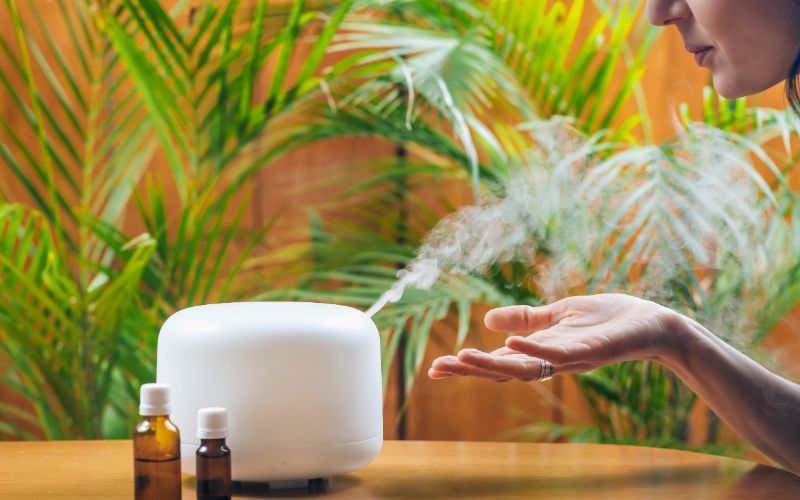
Hot Compress
Applying a hot compress to the affected area may relieve sinus headache pain. The heat from the compress helps to reduce inflammation and relieve pressure in the sinus cavities.
Simply soak a cloth in hot water, wring out the excess, and place it over your forehead or cheeks for about 10 minutes. Repeat this process several times a day for optimal results.
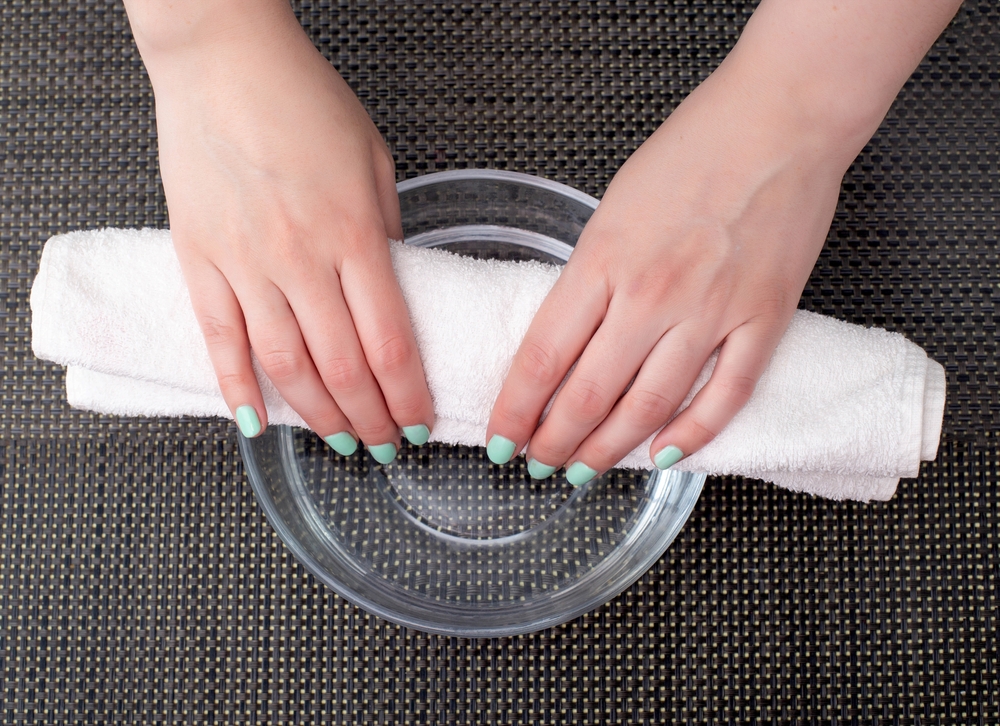
Salt Water Gargle
Gargling with salt water can help soothe a sore throat that often accompanies sinus headaches. It can also help clear nasal congestion by thinning out mucus and decreasing inflammation in the throat.
Mix half a teaspoon of salt in a glass of warm water to prepare a saltwater gargle. Gargle the solution for a few seconds and then spit it out. Repeat this process several times a day.
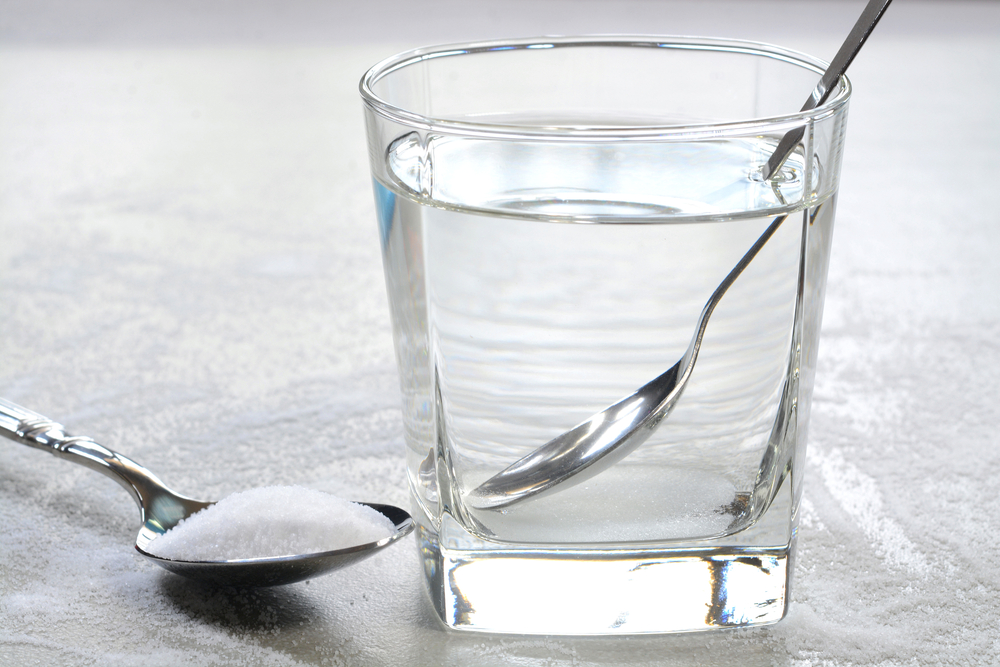
Spicy Foods
Eating spicy foods can help clear the sinuses and relieve sinus pressure. Foods such as horseradish, garlic, chili peppers, and wasabi can be effective.
Suggestions:
- Add spicy condiments to your meals.
- Incorporate garlic and onions into soups and dishes for additional relief.

Vitamin C
Boosting your intake of Vitamin C can strengthen the immune system and aid in fighting off sinus infections.
Sources of Vitamin C:
- Consider taking a Vitamin C supplement as recommended by your healthcare provider.
- Oranges, lemons, strawberries, and bell peppers.
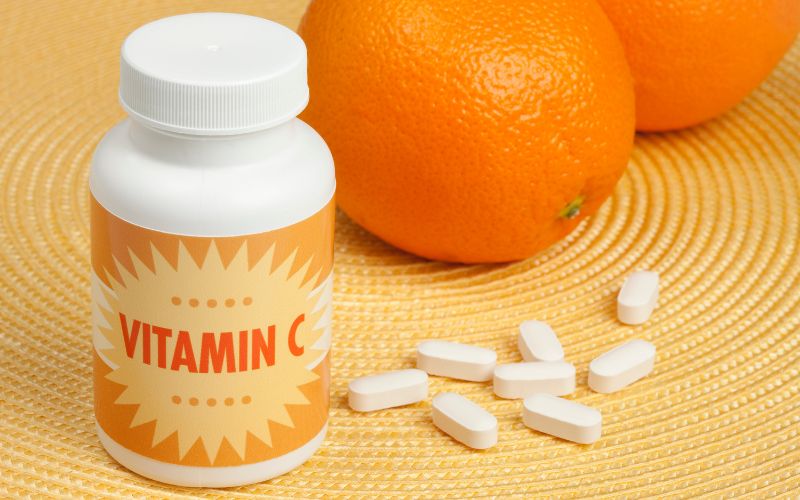
Nasal Irrigation (Neti Pot)
Nasal irrigation is an effective remedy for relief from sinus pain and is often performed using a device known as a neti pot.
This ancient technique, originating from Ayurvedic medicine, involves the process of flushing out the nasal passages, which are air-filled cavities within the structure of the nose.
The irrigation process uses a saline solution, a simple yet effective salt and sterile water mixture. This saline solution acts as a natural decongestant, helping clear mucus buildup and reduce inflammation within the sinus cavities.
The process of nasal irrigation not only aids in relieving sinus pressure symptoms but also helps maintain the health of the mucous membranes lining the nasal passages.

Herbal Teas and Supplements
Certain herbal teas and supplements can also help in relieving sinus headaches. For instance, ginger tea is known for its anti-inflammatory response and can help reduce sinus pressure and congestion. Bromelain, a type of enzyme found in pineapples, can help reduce swelling in the nasal passages.
However, you should always consult a healthcare professional before starting any new supplement regimen.
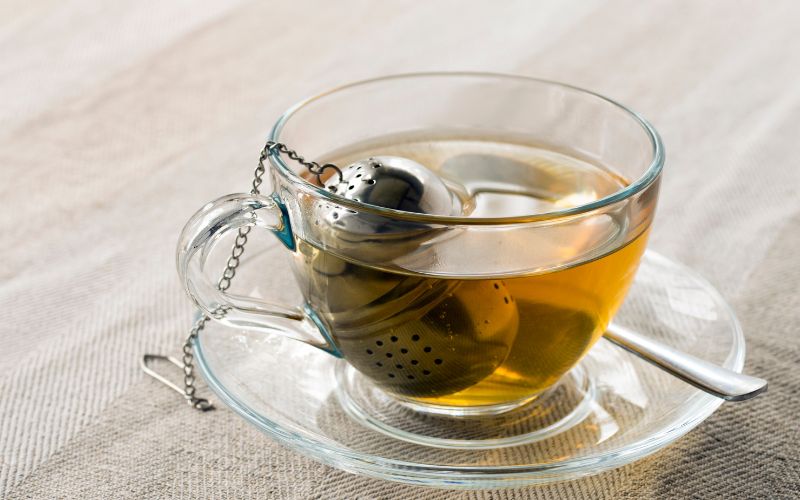
Use a Humidifier
Dry air can worsen sinus headaches by causing further irritation and inflammation in the nasal passages. Using a humidifier can help add moisture to the air and alleviate these symptoms.
It’s essential to keep the humidifier clean to prevent the growth of mold and bacteria, which can exacerbate sinus problems.
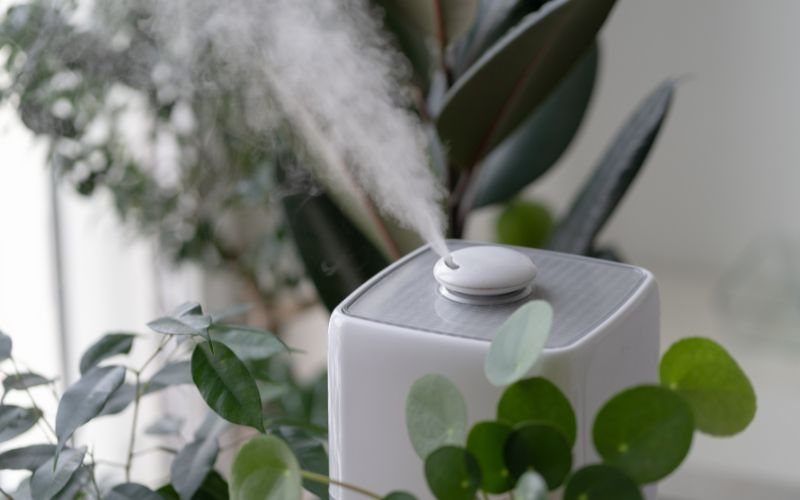
Essential Oils
Eucalyptus and peppermint oils are known for their anti-inflammatory and decongestant properties.
Using Essential Oils:
- Apply diluted essential oil to the temples and forehead (test for skin sensitivity first).
- Add a few drops of essential oil to a diffuser or steam inhalation.
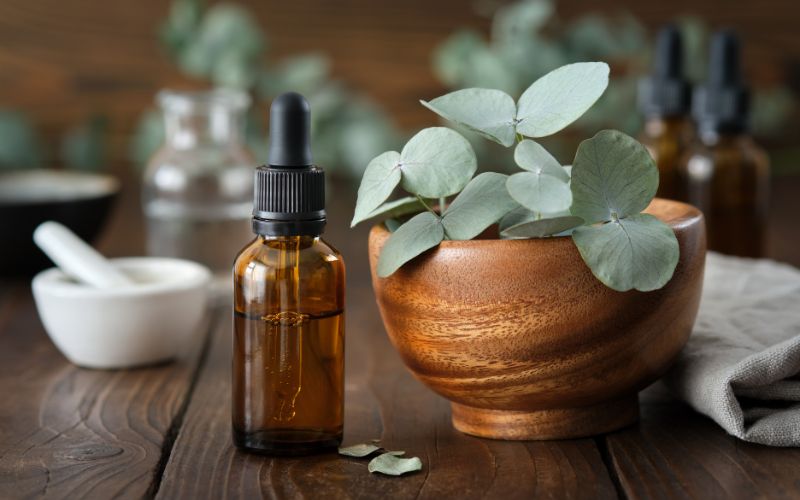
Secure Your Safe Treatment Experience with Penn Medicine
Join our satisfied clients who’ve experienced safe, effective treatments.
Why It Is Important to Clean the Nasal Passages with Saline Spray or Drops
At Penn Medicine Becker ENT & Allergy, we recommend using saline nasal sprays or drops to effectively alleviate sinus headaches. These products not only moisturize the nasal passages but also thin out mucus, enhancing drainage and reducing sinus pressure and facial pain.
For more personalized care and additional strategies to manage your sinus symptoms, we invite you to schedule a consultation with our specialists. Find relief and breathe easier by visiting us at Penn Medicine Becker ENT & Allergy, our team can guide you on the best options for your needs.
Lifestyle Habits That Help Prevent and Relieve Sinus Headaches
Making dietary changes can significantly impact the frequency and intensity of your sinus headaches. At Penn Medicine Becker ENT & Allergy, we understand that certain foods and drinks can contribute to inflammation and mucus production, while others may help reduce these symptoms.
Increase Fluid Intake
Staying well-hydrated is crucial for relieving sinus headaches. Adequate fluid intake helps thin the mucus, allowing for more effective drainage and reducing sinus pressure. Drinking plenty of water, clear broths, and herbal teas are great ways to maintain proper hydration.
Decrease Dairy Consumption
Dairy products can increase mucus production in some individuals, potentially worsening sinus congestion. If you notice that your sinus headaches worsen after consuming dairy, reducing your intake might improve your symptoms.
Avoid Alcohol and Tobacco Use
Alcohol and tobacco can aggravate sinus headaches by causing inflammation in the sinus passages. Alcohol can lead to dehydration, thickening the mucus and making it harder to drain. Whether firsthand or secondhand, tobacco smoke irritates the nasal passages and can worsen sinus symptoms. Avoiding these substances can help prevent sinus headaches and promote overall sinus health.
Increase Vitamin C and D Intake
Vitamin C is a powerful antioxidant that not only boosts the immune system but also helps fight off sinus infections. Incorporate more citrus fruits, bell peppers, strawberries, and kiwi into your diet to increase your vitamin C intake. Vitamin D also plays a vital role with its anti-inflammatory properties, found in fatty fish, fortified dairy products, and egg yolks, and can be absorbed through sunlight exposure.
For more personalized dietary recommendations and other strategies to manage your sinus headaches, schedule a consultation with our specialists at Penn Medicine Becker ENT & Allergy. Together, we can find the right approach to relieve your symptoms and enhance your overall well-being.
When Is Sinus Surgery an Option?
While many sinus headaches can be managed with home remedies and lifestyle adjustments, some individuals continue to suffer from recurring or long-lasting symptoms. In these cases, sinus surgery may offer a more effective and lasting solution.
If you’ve tried various methods for how to treat a sinus headache—including steam, nasal sprays, dietary changes, and over-the-counter medications—yet still experience ongoing pain and pressure, it may be time to explore surgical options.
At Penn Medicine Becker ENT & Allergy, our specialists evaluate each patient carefully to determine whether surgery is appropriate based on the severity and cause of their condition. Sinus surgery is typically considered when symptoms become chronic, interfere with daily life, or are linked to structural issues inside the nasal passages.
Signs You May Need Sinus Surgery
You might be a candidate for sinus surgery if you experience:
- Frequent or chronic sinus headaches that don’t respond to conservative treatments
- Ongoing nasal congestion, facial pain, or pressure that lasts 12 weeks or more
- Recurrent sinus infections, even after multiple rounds of antibiotics
- Nasal polyps or a deviated septum obstructing normal sinus drainage
- Difficulty breathing through the nose or persistent postnasal drip
- Sinus symptoms that negatively impact sleep, work, or overall quality of life
For those dealing with long-term symptoms, surgery may be part of a broader chronic sinus headache treatment plan aimed at restoring proper drainage, reducing inflammation, and preventing future flare-ups.
Get The Best Treatment for Sinus Headache in NJ & PA
If home remedies and lifestyle changes don’t relieve sinus headaches, it may be time to consult an ENT specialist. They can provide a thorough evaluation, recommend appropriate treatments, and guide you on preventing sinus headaches in the future.
At Penn Medicine Becker ENT & Allergy, our experts are ready to help you relieve your sinus headaches. We have a clinic in Freehold, New Jersey, serving the areas of West Freehold, Millhurst, Smithburg, Manalapan Township, and Siloam. Contact us today and schedule a consultation.

